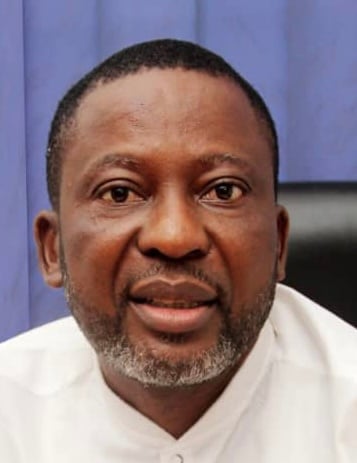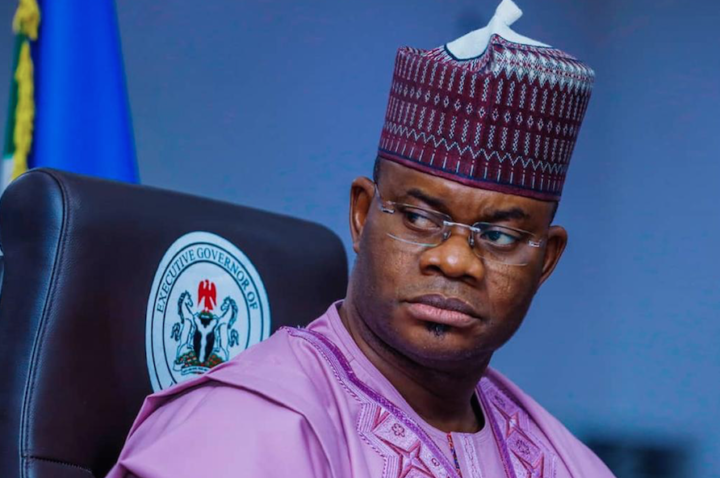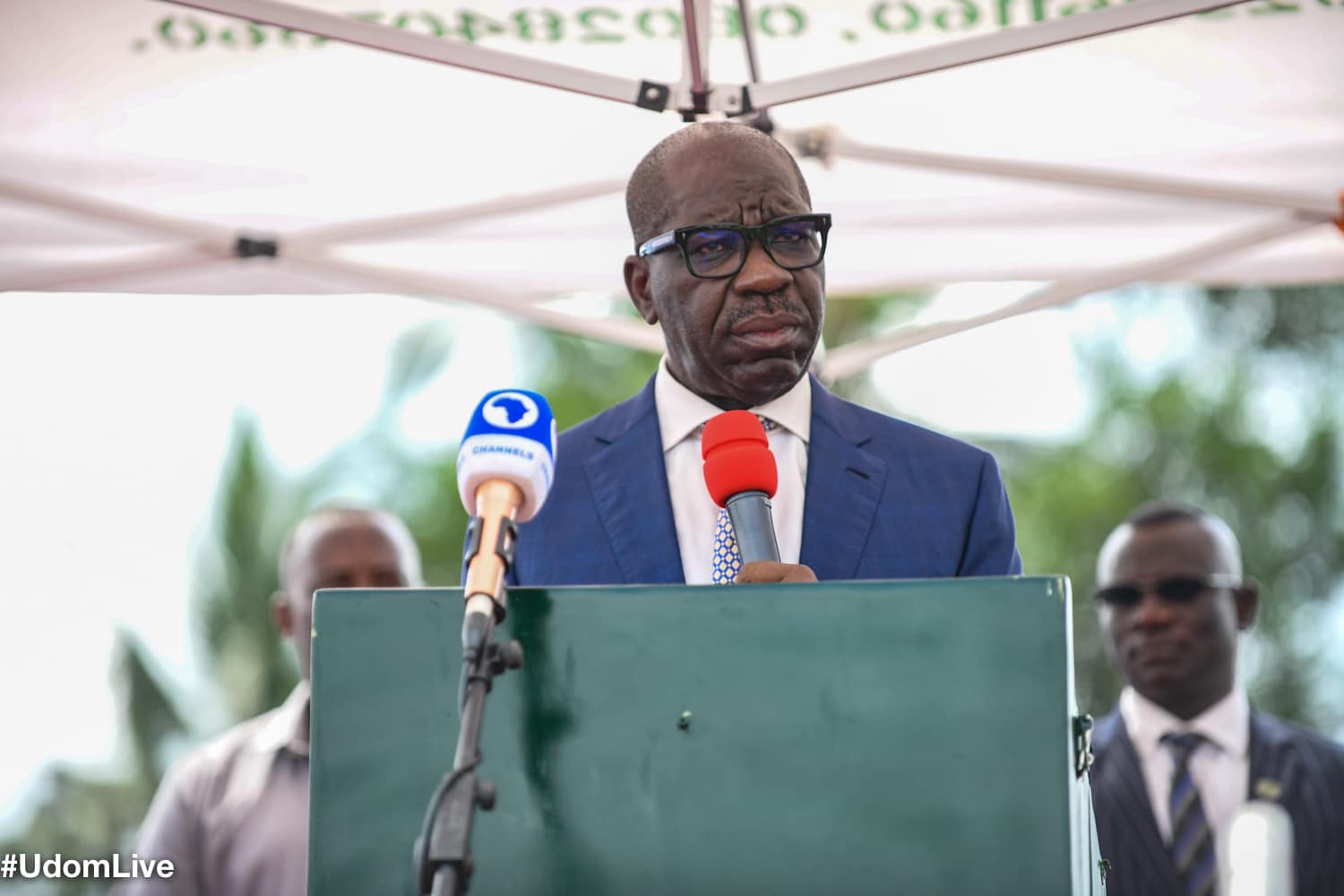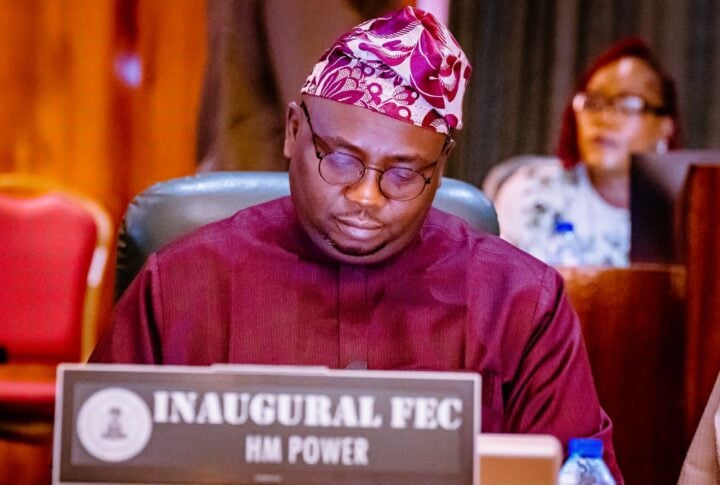In the Nigerian political space, few leaders have commanded attention quite like Yahaya Bello, the immediate past governor of Kogi state. Relatively unknown before his meteoric ascent to power, his youthful demeanour endeared him to the people, heralding a new era from the politics of the old.
Following the death of Kogi state APC governor-elect, Abubakar Audu, during the gubernatorial election in November 2015, there was a dramatic turn of events in the state leaving a power vacuum and plunging the state into uncertainty.
Amid grief and chaos, Yahaya Bello emerged as a polarising figure, ultimately ascending to the governorship and reshaping the political landscape of Kogi State. Enamoured by his political bravado, Bello took the moniker of the ‘White Lion’.
Bello, a relatively young and untested politician, suddenly found himself thrust into the spotlight, tasked with leading the state at a time of deep uncertainty and confusion.
Advertisement
Bold, charismatic, and often controversial, Bello’s rise to prominence seemed destined to culminate in a legacy of power and influence. Yet, as the sands of time-shifted and the winds of fortune changed direction, the once-mighty ‘White Lion’ has recently found himself transformed into a hunted squirrel, navigating a treacherous landscape of adversity and uncertainty with various cases of fraud and other malfeasance traced to his administration. This has led to a huge “Bello-hunt” by the EFCC the anti-graft agency.
The first sign of trouble for Bello’s administration was the refusal of his deputy elect, Hon. James Faleke, to accept the position of deputy governor and for the first time in Nigeria’s political history, an elected governor would be inaugurated without a deputy.
James Abiodun Faleke who was the running mate to Abubakar Audu in the 2015 Kogi state gubernatorial election objected to the party’s decision and approached the election tribunal in the state asking it to declare him governor-elect. He contended that the election had been won and lost before Mr Audu died and that he (Faleke) should have been pronounced governor-elect.
Advertisement
Bello’s ascension to the governorship was met with both optimism and scepticism. Supporters hailed him as a dynamic and visionary leader, a breath of fresh air in the polluted Kogi state political atmosphere, capable of steering the Confluence State towards a brighter future. Critics, however, questioned his credentials and suitability for the role, pointing to his lack of experience and the cloud of controversy that surrounded his candidacy.
Yet, despite the doubts and challenges that lay ahead, Bello remained undaunted, determined to prove his critics wrong and fulfil the mandate entrusted to him by the people of Kogi state.
One of the primary challenges that Bello faced during his tenure was the spectre of corruption and mismanagement. Several allegations of corruption swirled around his administration, tarnishing his reputation and eroding public trust. The once-vaunted ‘White Lion’ now found himself ensnared in the traps of his own making, as scandals and controversies threatened to consume his legacy.
For a few weeks now, the Economic and Financial Crimes Commission has been on Bello’s trail. The anti-graft agency had declared him wanted regarding the disappearance of about N80 billion from the state treasury during his eight years as governor.
Advertisement
A mild drama however played out on April 17, 2024, when operatives of the EFCC made a futile attempt to execute an arrest warrant at the residence of the former governor in Abuja. The anti-graft agency’s operatives which had arrived at Bello’s residence in Wuse Zone 4, Abuja, were obstructed by police personnel attached to the house.
The stand-off lasted about seven hours after it was suspected that the incumbent Kogi state governor Usman Ododo had sneaked Bello out of the house in his official car.
Several court cases have however ensued between the EFCC and the former governor since attempts are being made to get him to answer to several charges of corruption during his eight-year administration of the state.
Besides the N80 billion fraud the EFCC is hanging on Bello, the agency is also accusing him of money laundering involving over N10 billion, following years of beaming its searchlight on him and his family members.
Advertisement
The commission’s longtime investigations of the former governor had resulted in the N10 billion money laundering charges it instituted against his nephew, Ali Bello, and a co-defendant in 2022.
The prosecution named former Governor Bello in one of the newly introduced counts as an accomplice, but not as a defendant.
Advertisement
The EFCC accused Bello of conspiring with Ali Bello, Dauda Suleiman and Abdusalam Hudu to convert over N80 billion belonging to Kogi state to their personal use. The case, which has seen EFCC call witnesses to testify, is before Justice James Omotosho of the Federal High Court, Abuja.
Besides the fraud charges against Bello, his administration was also known to be notorious for not paying salaries of civil servants running for months while Bello and other elected and political appointees made Abuja their permanent base where they squander the resources of the state in riotous living.
Advertisement
His deputy, Simon Achuba, once stated that he was being owed over N800 million by the administration of Governor Bello, an allegation the then-governor promptly denied, challenged Achuba, his then deputy to head to court if he believed he had a case.
The governor, in a statement by his spokesperson, Kingsley Fanwo, said the salaries of the deputy governor had been paid up to the same date as that of the governor and other political office holders in the state.
Advertisement
The governor was to later admit that some of the claims of the deputy governor had not been paid because they were either not approved or there were no funds to pay them.
Bello’s leadership style was characterised by a combative and divisive approach, alienating allies and adversaries alike. His penchant for political brinkmanship and confrontation only served to exacerbate tensions within his party and the wider political scene, further isolating him from potential allies.
Indeed, Bello’s tenure stands as a stark reminder of the perilous consequences of placing authority in the hands of the undeserving. Bello was a master of deception, cloaking his incompetence and self-interest behind a facade of false promises and hollow rhetoric.
Yet, beneath this veneer lies a dangerous reality, one that serves as a cautionary tale for societies embracing leaders lacking in integrity, vision, and competence.
One of the most glaring manifestations of Bello’s mediocrity was his failure to prioritise the needs of the state. Instead of focusing on key areas that will help in improving the livability index of the state such as healthcare, education, infrastructure, and job creation, his administration was mired in petty politics, cronyism, and self-aggrandisement.
Public resources were squandered on frivolous projects and personal indulgences, while the basic needs of the populace were not attended to.
Bello’s leadership style was characterised by incompetence, braggadocio and vendetta. Rather than surrounding himself with knowledgeable advisors and subject matter experts, he surrounded himself with sycophants. He elevated cronyism to an art in Kogi state and deployed instruments of terror against anyone who refused to worship at his altar. He operated as an emperor who could do and undo without accountability.
As a result, critical decisions were made haphazardly, without due consideration for their long-term consequences or the interests of the people.
Instead of answering the charges of corruption while in office, Bello had sought help from the APC administration calling on President Tinubu to “call EFCC to order”. He has also been using media and other platforms to sway public opinion in his favour, a mission that has failed woefully as the citizens insist he come out of his hiding and answer to acts of misdemeanours when he was in office.
Governor Bello has continued to use the incumbent governor of Kogi state to evade justice, further undermining the foundations of democracy and good governance.
As the walls closed in around him, Bello has now found himself increasingly isolated and vulnerable, like a hunted squirrel scrambling for safety in a hostile forest. His once-loyal supporters are said to have deserted him; disillusioned by broken promises and unfulfilled expectations.
Meanwhile, political opponents are circling like vultures, eager to capitalise on his downfall.
In the end, Bello’s tenure as governor came to an ignominious end. The ‘White Lion’ had been vanquished, his roar reduced to a whimper as he slunk away into obscurity, leaving behind a legacy of disappointment and despair.
Amidst the ruins of his political career, there lingers a lesson for all aspiring leaders – a cautionary tale of the perils of hubris and arrogance, and the dangers of losing sight of the true essence of leadership. For Yahaya Bello, the journey from power to obscurity serves as an unambiguous reminder that in the unforgiving jungle of politics, even the mightiest of beasts can be brought low by their folly.
The weight of corruption and embezzlement charges against Bello is a big blow to the “Not Too Young To Run” movement as a youth in politics has failed the integrity test. The hitherto poster boy of youth in politics has turned into an albatross and a huge disappointment.
Okoronkwo is a good governance and leadership advocate and wrote via [email protected].
Views expressed by contributors are strictly personal and not of TheCable.
Add a comment







